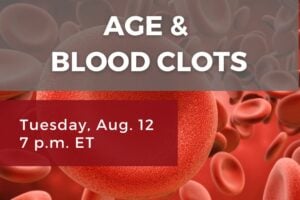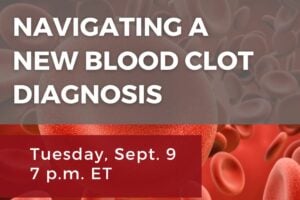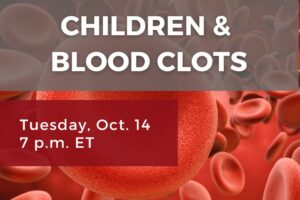 The National Blood Clot Alliance (NBCA), in partnership with the Alexandra L. Rowan Memorial Foundation, and as an extension of our existing Women and Blood Clots program, has launched a suite of new resources focused squarely on the information needs of young women seeking a better understanding about their potential blood clot risks when estrogen-based birth control options are being considered.
The National Blood Clot Alliance (NBCA), in partnership with the Alexandra L. Rowan Memorial Foundation, and as an extension of our existing Women and Blood Clots program, has launched a suite of new resources focused squarely on the information needs of young women seeking a better understanding about their potential blood clot risks when estrogen-based birth control options are being considered.
The new assets associated with our Women & Blood Clots program include the following life-saving tools and information:
- An important new risk assessment tool
- A program overview
- A blood clots and hormonal birth control fact sheet
- A summary of related resources and educational content
- The personal stories of three young women affected by blood clots
To coincide with the start of the new school year, NBCA launched this information nationwide the week after Labor Day, making it available in both hard copy and electronic formats to universities and colleges, that in turn can now share it with young women who visit their student health centers seeking birth control or birth control counseling.
Blood clots do not discriminate — they affect people of all ages, race, and gender. However, women face a lifetime of blood clot risks connected to the choices they make about certain aspects of their healthcare. Birth control that contains estrogen, for example, places women at increased risk for dangerous blood clots.
 More than 60 million women between the ages of 15 and 44 in the United States use some form of contraception or birth control. The most common contraceptive methods used among younger women, or women between the ages of 15 and 24, is the birth control pill, which is used by 22 percent of women in this age group. Research shows that the birth control pill can be safely and effectively used by many women, but hormonal contraception in any form also is well documented as a potential risk factor for life-threatening blood clots. Birth control pills increase a woman’s risk for blood clots three-fold, while newer pills pose a risk double that of the older pills.
More than 60 million women between the ages of 15 and 44 in the United States use some form of contraception or birth control. The most common contraceptive methods used among younger women, or women between the ages of 15 and 24, is the birth control pill, which is used by 22 percent of women in this age group. Research shows that the birth control pill can be safely and effectively used by many women, but hormonal contraception in any form also is well documented as a potential risk factor for life-threatening blood clots. Birth control pills increase a woman’s risk for blood clots three-fold, while newer pills pose a risk double that of the older pills.
You can access all of this new information on our Women and Blood Clots site, here.






